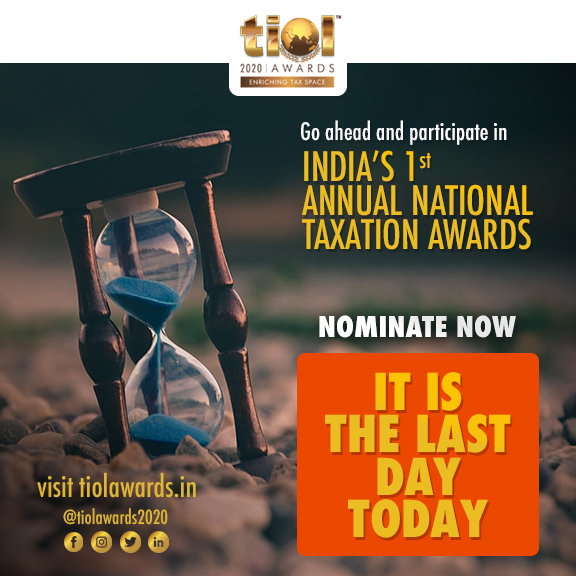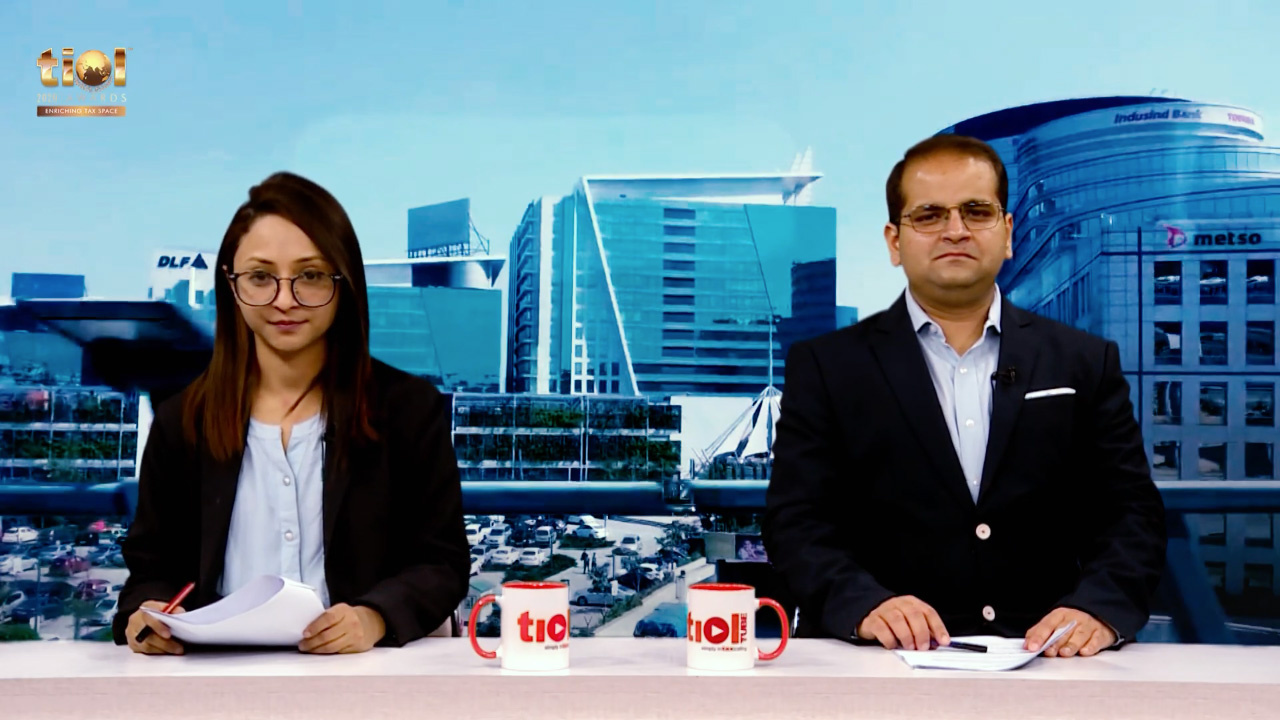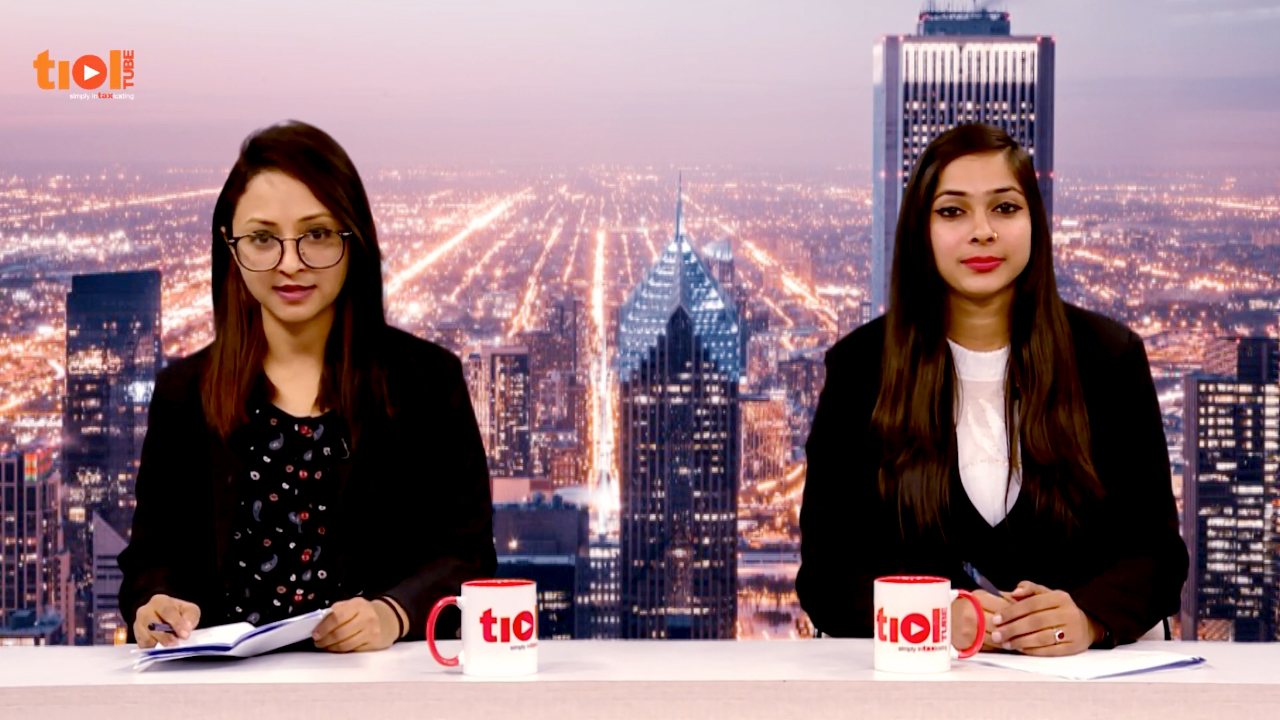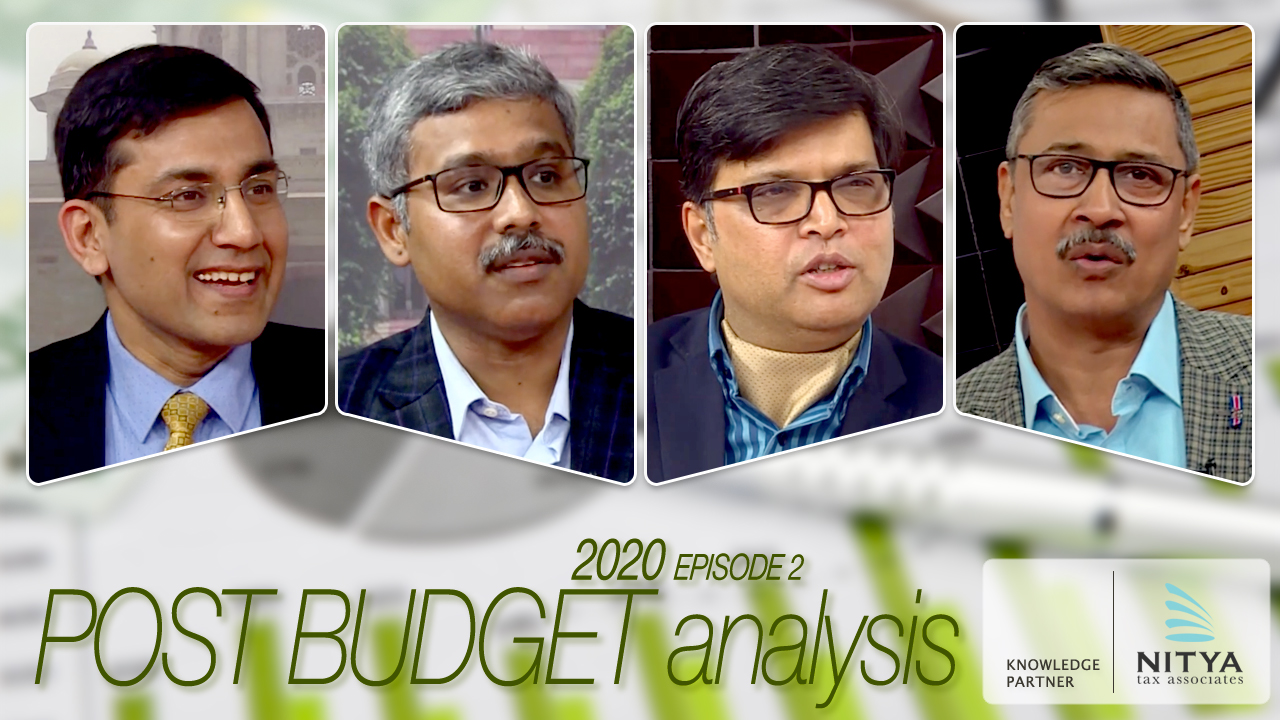|
SERVICE TAX
2020-TIOL-482-HC-AHM-ST
Deendayal Port Trust Vs UoI
Service Tax/GST - Petitioner is a body corporate notified under the Major Port Trust Act, 1963 established for developing, operating and managing a major port in Kandla - They follow the cash system of accounting and had filed return of service tax in Form ST-3 for the period from 1st April, 2017 to 30th June, 2017 on 14.08.2017 - It is the case of the petitioner that after filing of such return, it was realized that there were certain invoices pertaining to the said period which remained unaccounted and consequently, Input Tax Credit involved in such invoices could not be claimed in the return of service tax in Form ST-3 - Petitioner, therefore, used online facility available on the Automation of Central Excise and Service Tax ( "ACES") and filed revised Form ST-3 on 17.09.2017, wherein ITC of Rs.6,94,19,228/- was claimed - There were some more invoices which remained unaccounted and ITC involved therein amounting to Rs.99,46,810/- was left out even in the revised return in Form ST-3 - However, when the petitioner again tried to file second revise return so as to claim correct amount of ITC, ACES did not permit the same and consequently they could not claim the ITC to the tune of Rs.99,46,810/- The petitioner made an application on 09.11.2017 requesting the Assistant Commissioner, Gandhidham to consider this additional claim of ITC - upon introduction of GST, the petitioner filed Form No.Tran-1 online, wherein the amount of ITC entered included the amount of Rs.99,46,810/- thus claiming a total ITC of Rs.7,93,66,038/- - Respondent informed the petitioner that the actual closing balance of ITC in last service tax Form No.ST-3 filed by the petitioner was Rs.6,94,19,228/- and, therefore, the excess amount of Rs.99,46,810/- was directed to be reversed - in response to the assessees letter dated 27.12.2018, the respondent no.2, vide notice dated 31.12.2018, informed the petitioner that as per Rule 7B of the Service Tax Rules, 1994, an assessee was allowed to file a revised return in Form ST-3 within a period of 90 days from the date of submission of original return in Form ST-3; that when the original return is revised, no other option for second revision of the return is permitted as per Rules, 1994 - Petitioner has, therefore, filed the present petition for appropriate direction to the respondents to permit the petitioner to avail ITC of Rs.99,46,810/- under CGST Act-2017.
Held: Rule 7B of the STR, 1994, permits the assessee to file revised return in form ST-3, in triplicate, to correct a mistake or omission, within a period of ninety days from the date of submission of return under Rule 7 - As per rule 7B, it appears that the assessee can revise the return filed under Rule 7 within a period of 90 days from the date of submission of the original return under Rule 7 of the Rules, 1994 - Rule 7B only permits the assessee to revise the mistake or omission in the return filed under Rule 7 within a period of 90 days - If the assessee finds any mistake in the form ST-3 file under Rule 7 of the Rules 1994, he can revise the same in multiple documents within prescribed period - The intention of the framing of the Rule is to revise return Form ST-3 filed under Rule 7 of the Rules, 1994 - Therefore, the stand taken by the respondents that once option is exercised to revise the original return, then the assessee cannot file revised return again within prescribed time period under Rule 7B of the Rules, 1994 is not tenable - ACES portal not allowing the petitioner to revise the Form ST-3 for the second time within prescribed period resulting into technical glitches is contrary to the provisions of Rule 7B of Rules, 1994 - In the opinion of the the Court, the respondents have failed to consider the aspect of technical glitches to reject the claim of the petitioner on the ground that the petitioner has no option to revise the return in Form ST-3 once the original return is revised by the petitioner - Respondents are directed to consider the claim of the petitioner for the amount of ITC of Rs.99,46,810/- manually under Rule 7B of the Rules, 1994, so as to enable the petitioner to take advantage of the order dated 07.02.2020 to revise the Form Tran-1 to be filed online on or before 31.03.2020 - Such exercise shall be completed by the respondents on verification of the claim of the petitioner for the differential amount of the ITC of Rs.99,46,810/- within a period of two weeks from the date of receipt of copy of this order - Petition disposed of: High Court [para 10 to 14]
- Petition disposed of: GUJARAT HIGH COURT
2020-TIOL-382-CESTAT-HYD
ECIL Rapiscan Ltd Vs CCE, C & ST
ST - Rule 2(e) of CCR, 2004 as it stood during the relevant period squarely covered within the ambit of 'exempted service' any service rendered in J&K - Bench is not aware of any ruling on the vires of this Rule or even its challenge - The case laws relied upon by appellant do not indicate what the definition of 'exempted service' during the relevant periods was and why the services rendered in J&K do not fall under the definition - Bench, therefore, is of the considered view that the services rendered by the appellant in J&K are exempted services and must be treated as such while computing the ineligible/reversible CENVAT credit under Rule 6(3) of CCR, 2004 - Relevant period in this case is prior to 1-4-2011 when the definition of 'exempted service' under Rule 2(e) of CENVAT Credit Rules, 2004 included any service on which no service tax could be levied under the provisions of Chapter V of the Finance Act, 1994 - Since no service tax could be levied on any service rendered in Jammu and Kashmir under this Act, it squarely falls under the definition of 'exempted service' - services rendered by the appellant in J&K are exempted services and must be treated as such while computing the ineligible/reversible CENVAT credit under Rule 6 (3) of CCR, 2004 - matter is remanded with directions to the original authority to re-determine the amount of cenvat credit which needs to be disallowed, the interest thereon and the appropriate penalty: CESTAT [para 21, 22, 23, 24]
ST - CENVAT - appellant is not entitled to cenvat credit on the agency commission paid for procuring order either for selling the goods or for procuring orders for AMC - Gujarat High Court decision in the case of Cadilla Healthcare Ltd. - 2013-TIOL-12-HC-AHM-ST followed: CESTAT [para 13]
ST - CENVAT - On the question of the trading activity being an exempted service only post 01.04.2011 Bench finds that this issue has been settled by the High Court of Madras in the case of Ruchika Global Interlinks - 2017- TIOL-1235-HC-MAD-ST and FL Smidth - 2014- TIOL-2186-HC-MAD-CX that either before 01.04.2011 or after this date, trading activity is an exempted service: CESTAT [para 14]
- Matter remanded: HYDERABAD CESTAT
2020-TIOL-381-CESTAT-DEL
CC & CE Vs National Project Construction Corporation Ltd
ST - The assessee is a PSU engaged in providing construction services to M/s NTPC Ltd - The Revenue opined that the assessee failed to furnish Form ST-3 returns and evaded payment of tax - In compliance with queries raised, the assessee supplied the requisite site-wise details of payment received against constructuon of off-site works and balance road work - SCN was issued invoking extended period of limitation and calculating tax liability u/s 72 based on best judgment assessment - Duty demand was raised along with demand for cess - Penalty was imposed too - On adjudication, the proposals in the SCN were confirmed in part, along with interest and penalty u/s 77 & 78 of the Finance Act - On appeal, the Commr.(A) held that the matter was settled in the assessee's own case and so remanded the matter for reexamination of relevant contract documents - Hence the Revenue's appeal against such findings.
Held: As per the facts and circumstances, the service rendered by the assessee is taxable only and the category of works contract service as per the law laid down by the Apex Court in Commissioner of Central Excise and Customs Vs. Larsen & Toubro Ltd - Besides, the work of road construction even in NTPC premises which may be termed as private road is exempt service as per the definition of works contract service which specifically exempts road service - There is no distinction made out by the legislature between public roads and private roads - Admittedly, the assessee paid service tax under Works Contract Composition Scheme along with interest - Hence the assessee is liable to pay tax under the same and once such liability is discharged, there is no further duty liabilit - Hence the Revenue's appeal merits being dismissed - The assessee is directed to submit a calculation of the discharge of the tax liability under the works contract composition scheme before the adjudicating authority - If any discrepancy is found, the same be pointed out to the assessee: CESTAT
- Revenue's appeal dismissed: DELHI CESTAT
CENTRAL EXCISE
2020-TIOL-380-CESTAT-BANG
Koso India Pvt Ltd Vs CCT & CE
CX - CENVAT - Initially the appellant set up Unit-II for manufacture of Control Valves but subsequently, found that the space is inadequate and, therefore, he set up another unit which is Unit-I adjacent to Unit-II and transferred some of the inputs and capital goods from Unit-II to Unit-I as per the advice given by the department - The appellant transferred the inputs and capital goods by raising invoice and debited duty in Unit-II and took credit of the same in Unit-I in terms of Rule 3(5) of the CCR - Both debit and credit entries made by both the units are reflected in the ER-1 returns and due intimation was given to the department by the appellant vide their letter dated 14.6.2010 - appellant had also applied for single registration for both the units as per Notification No. 36/2001-CE (NT) dated 26.6.2001 and the same was permitted by the Commissioner of Central Excise by issuing single registration on 10.11.2009 - It is a case of simply stock transfer, therefore, the restriction as provided in Rule 9(1)(b) of CCR is not applicable because the appellant has not availed credit on supplementary invoices - Appellant has paid the duty voluntarily in terms of Section 11A(2B) of the CEA on being pointed out by the Preventive Officers and took the credit of the same in Unit-I in terms of Rule 3 of the CCR, therefore, in view of the decision of the Karnataka High Court in the case of KSDL, it has been held that delayed payment of duty voluntarily paid on being pointed out by the department does not amount to suppression with intent to evade payment of duty and hence, credit cannot be denied by invoking provisions of Rule 9(1)(b) of CCR - also, the entire exercise of payment of central excise duty and availment of credit results into revenue neutral situation and, therefore, no suppression of fact with intent to evade payment of duty can be alleged - All the facts from the beginning were in the knowledge of the department and specific intimation was also given by the appellant vide its letter dated 14.6.2010 and therefore, invoking extended period of limitation to confirm the demand is not tenable in law - Therefore, the entire demand is also barred by limitation - impugned order is not sustainable on merit as well as on limitation - appeal allowed: CESTAT [para 6, 7]
- Appeal allowed: BANGALORE CESTAT
2020-TIOL-379-CESTAT-DEL
CCGST & CE Vs Genus Power Infrastructure Ltd
CX - CENVAT - When admittedly the inputs/ capital goods/ raw-material has been transferred from one unit to another by making endorsement on the invoices and these transferred goods are used by recipient unit in manufacture of final product, then such invoices can be taken as a valid document by said recipient unit for taking the Cenvat Credit irrespective of the fact that the invoice was issued in the name of transferring unit but has been endorsed in the name of recipient unit who is appellant in the present case: CESTAT [para 9]
CX - CENVAT - Allegation in the show cause notice are pointing merely to a procedural lapse - Supreme Court in case of Sambhaji vs. Gangabhai - 2009-TIOL-79-SC-MISC has held that all rules of procedures are handmaids of justice; that language employed by draftsman of procedural law may be liberal or stringent but object of prescribing procedure is to advance the cause of justice; that no party should ordinarily be denied opportunity of participating in process of justice dispensation in an adversarial system; that the procedural law is not to be a tyrant but a servant, not an obstruction but an aid to justice; that a procedural prescription is the handmaid and not the mistress, a lubricant, not a resistant in the administration of justice - As the endorsed invoice otherwise qualifies the intent of the legislature in terms of proviso to Rule 9 (2) of CCR, there is no infirmity in the order of Commissioner (Appeals) allowing such credit - Reveue appeal dismissed: CESTAT [para 9]
- Appeal dismissed: DELHI CESTAT
CUSTOMS
2020-TIOL-481-HC-DEL-CUS
Pawanputra Exim India Vs CC
Cus - In the relevant period, certain goods belonging to the petitioner company had been seized on grounds of their over-valuation - The petitioner filed the present writ, seeking that directions be issued to the Revenue authorities to release the goods on provisional basis.
Held: The Customs authorities concerned are directed to decide upon the petitioner's claim for provisional release of the goods - Such exercise be carried out within two weeks' time: HC
- Writ petition disposed of: DELHI HIGH COURT
|
|







